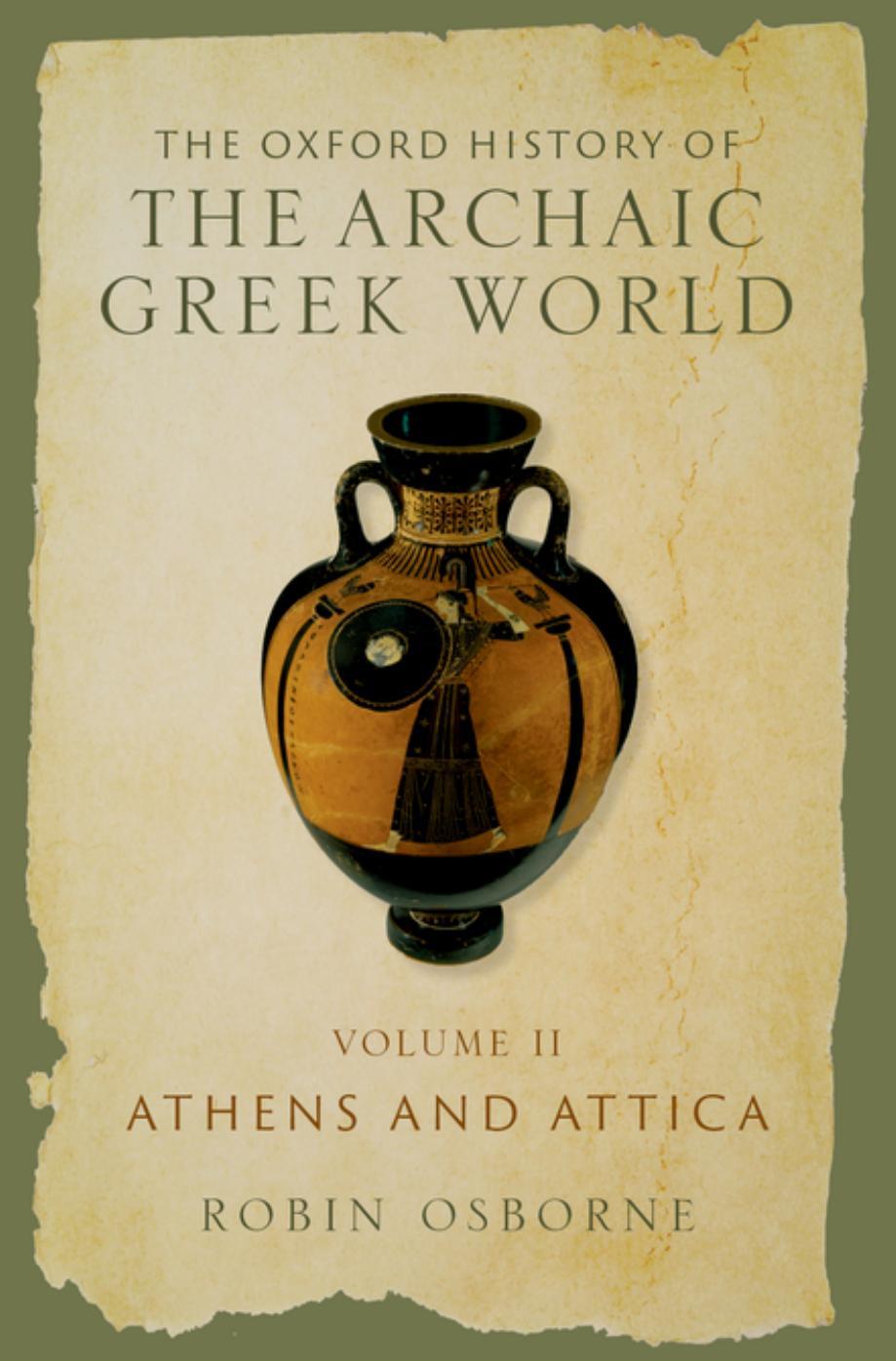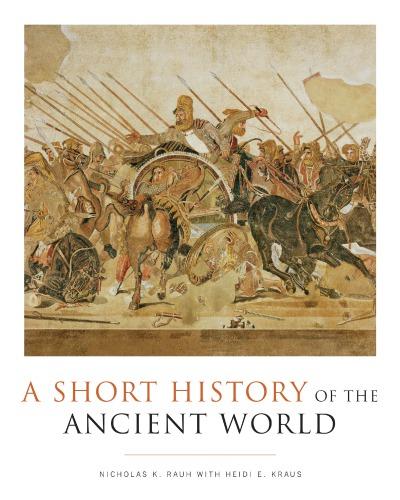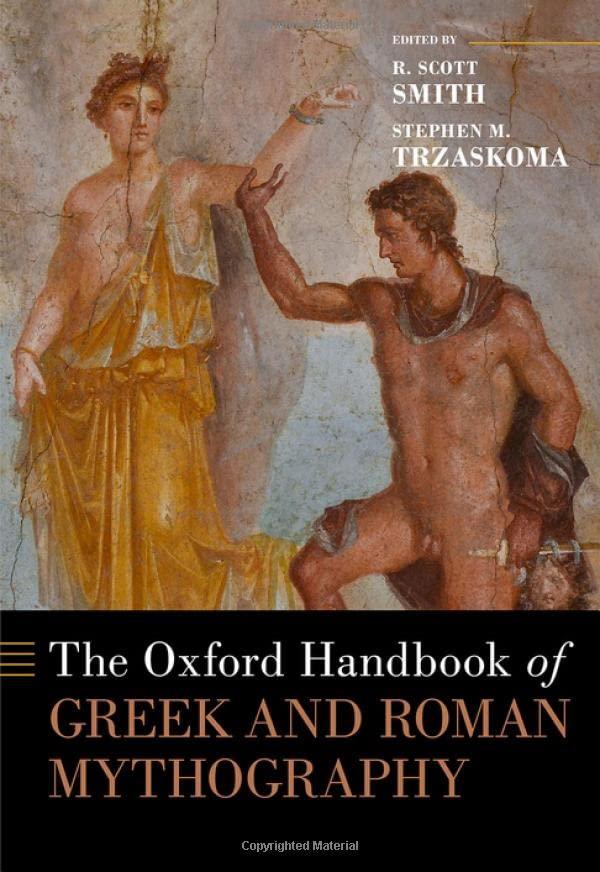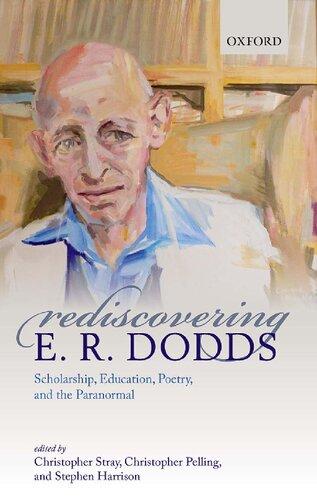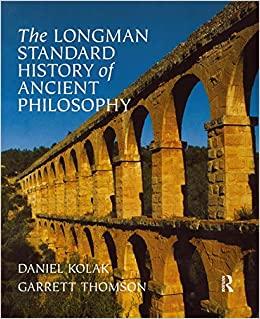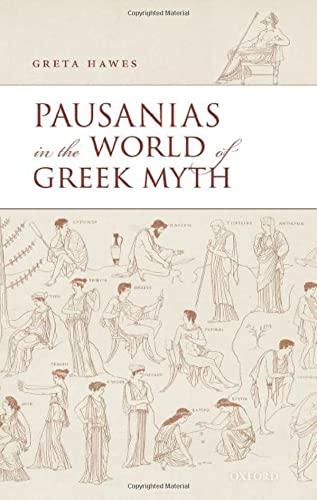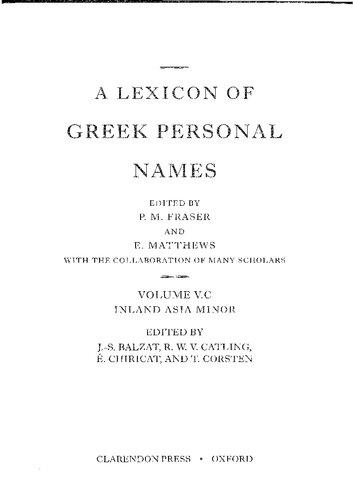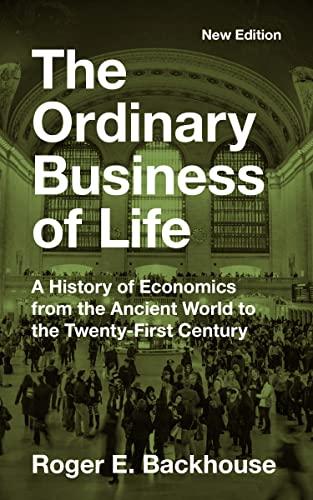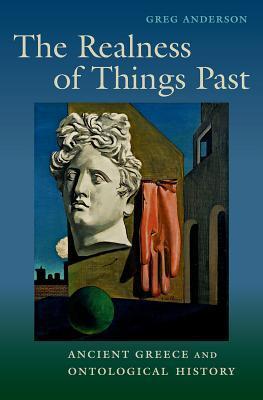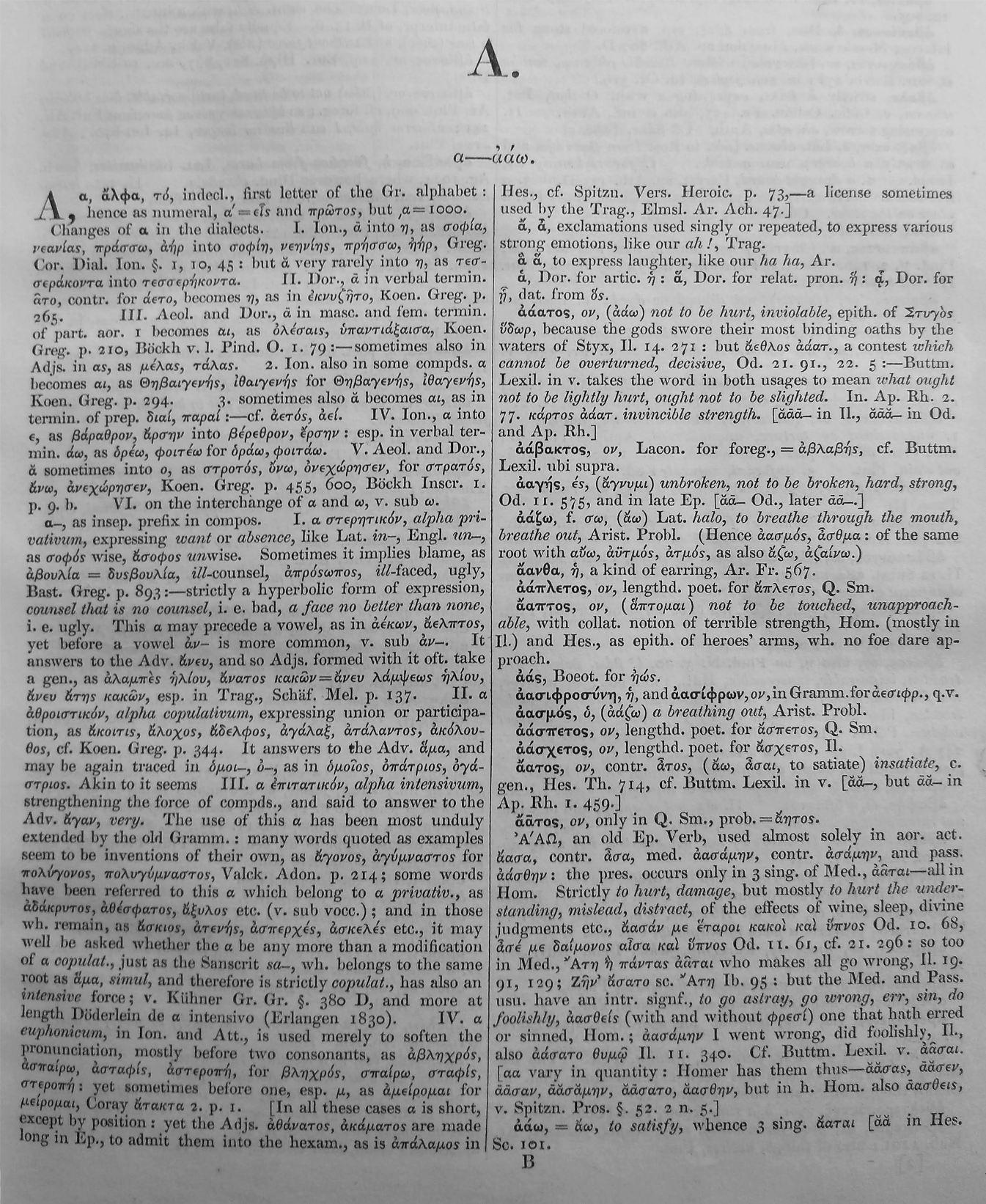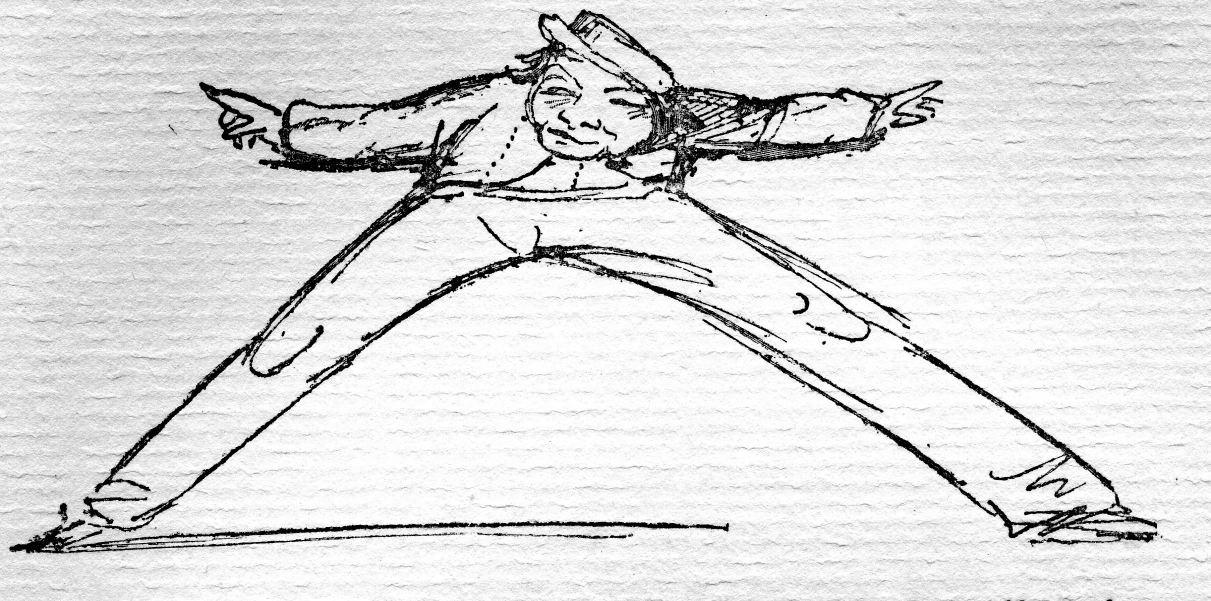LiddellandScott inHistoricalContext
VictorianBeginnings,Twentieth-CenturyDevelopments
ChristopherStray
LiddellandScott issomassivelyfamiliarapartofthelivesofstudentsofGreek atalllevelsthatwetendtotakeitforgranted:itisjustthereontheshelf,desk, ortable,waitingtobeconsultedbytheuncertainandappealedtoincasesof dispute.Behindthismonumentalandimpartialfamiliarity,however,isa complexhistoryofscholarlycontroversyandcommercialbookproduction. Thischaptersetsthe firsteighteditionsoftheLexicon(1843–97)inanumber ofcontemporarycontexts:theinstitutionalandintellectualworldofOxfordin the1830sand1840s;theemergenceofclassicaldictionariesusingvernaculars ratherthanLatinforglosses;therelationshipoftheLexiconwithother dictionaries;thedevelopmentofthebookthroughsuccessiveeditionsand abridgements;thereputationoftheLexicon;anditsprintingandpublishing history.Thechapterwillaimtoexploretheseseparatecontexts,andtosuggest howtheyinteracted.
1.1.EARLYVICTORIANOXFORD:INSTITUTIONAL ANDINTELLECTUALCONTEXTS
TheLexiconbeganlifeasacommissionnotfromitseventualpublisher, OxfordUniversityPress,butfromalocalbooksellerandpublisher,David Talboys,whosincehisarrivalinthecityin1814hadbuiltupanimpressivelist includingseveraltranslationsofGermanacademicworks,someofthem translatedbyhimself.¹OxfordUniversityPressdidnothaveabookinthe
¹Variousconjecturaldateshavebeengivenforthecommission.Thompson1899,667 quotesfromaletterinwhichLiddelltellshisfriendH.H.VaughanthatheandScottareabout ChristopherStray,LiddellandScott inHistoricalContext:VictorianBeginnings,Twentieth-Century Developments In: LiddellandScott:TheHistory,Methodology,andLanguagesoftheWorld’sLeading LexiconofAncientGreek.Editedby:ChristopherStray,MichaelClarke,andJoshuaT.Katz, OxfordUniversityPress(2019).©OxfordUniversityPress. DOI:10.1093/oso/9780198810803.003.0001
field,thoughthiswasnotforwantoftrying.In1827theDelegatesofthePress hadenthusiasticallyacceptedanoffer(whichtheymayhaveencouraged)from ayoungChristChurchman,J.A.Cramer,totranslateaseventeenth-century Greek-Latin/Latin-GreeklexiconintoEnglish,butin1830,afterprintinghad begun,theprojectwascancelled,forreasonsthatremainunclear.²In1829the presscommissionedanotherrecentOxfordgraduate,JohnRiddle,totranslate theLatin-GermandictionaryofImmanuelScheller;thisemergedin1835asa singleheavyandunwieldyvolumeprintedinthreecolumns.Riddlewentonto producethreeprogressivelyabridgedversions(1836–43),publishednotby OUPbutbyLongmans.BoththiscommissionandCramer’sofferwere probablyencouragedbyThomasGaisford,aPressDelegatesince1807and regiusprofessorofGreeksince1812;hehimselfworkedextensivelyonancient lexica(Stray2018,53–81).Since1831GaisfordhadbeenDeanofChrist Church,thecollegetowhichLiddellandScottbelongedasundergraduates; hissupportisacknowledgedintheprefacetothe firsteditionoftheLexicon. LiddellandScott,likeCramerandRiddle,wererecentgraduateswith firstclassdegreeswhencommissionedtoproducetheirbooks acommonpattern inOUPpublishinginthisperiod.TheAbridgedLexiconwaspublishedshortly afterthelargebookin1843,soithadclearlybeenplannedforsometime (cf.note21below).Thisunusual,indeeduniquearrangementmayhave stemmedfrompreviousabridgementssuchasRiddle’sLatindictionaries andthe Tyro’sLexicon ofJohnJones(1825),anabridgementofhislarger Greek-Englishlexiconof1823,the firstworkofitskind.
OnLiddell’sdeathin1898,ThomasHardypublishedapoementitled ‘LiddellandScott,onthecompletionoftheirlexicon’,castintheformofa dialoguebetweenthetwomen.AtonepointScottremarks:
...howIoften,oftenwondered What couldhaveledmetohaveblundered Sofarawayfromsoundtheology Todialectsandetymology...
Hardy’ s contrastbetweensoundtheologyandspeculativephilologyisdramaticallyeffective,butdoesnotdojusticetoLiddellandScott’ssituationin themidstofAnglicancontroversy.Itisnotjustthattheologyandphilology wereheavilyintertwinedinthe1830and1840s,butthattheologywas becomingacontestedareajustatthepointwhenLiddellandScottbegan tocloseanengagementwithTalboystoedittheLexicon.Theletter,whichThompsondoesnot date,waswrittenon21November1836(BodleianLibrary,MsEngLetd435).
²ThesourcelexiconwasprobablyWilliamRobertson’ s ThesauraeGraecaeLinguae (1676),a GreekLatin,LatinGreekdictionaryThiswasbasedonthe1654lexiconofCornelisSchrevel, itselfanenlargedrevisionofthe1562GreekLatinlexiconofRobertConstantin,whichwasmore usefulthanEstienne’sThesaurusbothinitsmanageablesizeandinitsalphabeticalorderingof entries.ForotherlexicaderivedfromSchrevel,seen.13below.
work.From1833OxfordwashauntedbytheTractariancontroversy,which culminatedinJ.H.Newman’sconversiontoCatholicismin1845(Nockles 1997).In1838,inalettertohispupilHenryAcland,Liddellreportedthat ‘Iamstillabletoplodmywearywaythroughtheneverendingreamsof Passow’,beforetellinghimthat ‘theUniversity’sprinciple[sic]topiciswhat theCambridgescofferscall “New-mania” ...Therearemenwhohave(asit were)acalltohigherthings...mostofus...knew(thankGodforit)whatwe oughttobelieve,&what ...we engagedsteadilyinfollowing&doing,without constantspeculation... ’³Liddell’saccountreflectsaconcerntoavoidcontroversyinwhichthesteadypursuitofphilologicalprojectssurelyplayedauseful role.OneofhisandScott’ s finaldegreeexaminerswasWilliamSewell,an eccentrichighAnglicanwhoat firstsupportedtheTractarians,andwhohas beencreditedwithsuggestingtheLexiconproject.InhisbiographyofLiddell, HenryThompsonhintedthatSewellproposedtheprojectasawayofavoiding theobsessionwiththeologyintheUniversity(Thompson1899,66–7). ThompsonquotesfromaletterfromLiddelltoH.H.Vaughan(referredto above,n.1)inwhichhewrotethat ‘SewellthinkstheOxfordmindisrunning toomuchtopureTheology:ifyouthinksotoo,youwillbegladtohearthat someofusare inalllikelihood abouttocloseanengagementwithTalboys foralexiconfoundedchieflyonPassow.’
ThenexusoftheologyandphilologyhasbeenexploredbyLindaDowlingin her LanguageandDecadenceintheVictorianFin-de-Siècle (Dowling1986), whereshediscussestheworkofJuliusHare,ConnopThirlwall,andtheir PhilologicalMuseum (1831–3).ShealsomentionsPassow’slexicon(p.58),but asaprecursortothe OxfordEnglishDictionary:LiddellandScottdonot appear.YetintheperiodfromPassow’sdeathin1833toR.C.Trench’ s proposalofanewEnglishdictionaryin1857,itwastheGreeklexicon whichcarriedthePassowstandard,withentrieswhichlaidoutthebiographies ofwords.⁴ Thelinksbetweentheologyandphilologycanbeseeninthecareers ofWilliamWordsworth’snephewsCharlesandChristopherWordsworth, schoolmasterswhobecamebishops.TheyhadbeenbroughtupasTories andhighAnglicans,andinthe1830s,whenliberalismandpoliticalreform wasintheairandtheTractariancontroversywasatitsheight,wereconcerned tobolsterestablishedreligionandconservativemorality.Asscholars,theyfelt thatclassicalliteratureshouldbeusedtodefendrevealedreligion;asschoolmasters,that(inChristopher’swords) ‘uniformityingrammarisnoinconsiderablesteptowardsuniformityinreligion’ (italicsinoriginal:seeStray2016). ThebrothersvigorouslyrefoughtthereligiousbattlesofthelateRoman EmpireandtheReformation,buttheirisolationwasheightenedwhentheir erstwhileallyGladstonewentovertoliberalpoliciesinthelate1840s.In1847,
³LiddelltoAcland,23April1838.Liddellpapers,ChristChurchlibrary,MS348. ⁴ Forusefulcontext,seeAarsleff1983,24958;Zgusta2006,2738.
CharlesWordsworthwrotetoJ.R.Hope, ‘WEGhasletusdown,abandoned thehighgroundandthesureground,themissiontosaveChurchand State’,andwentontourgeuniformityinreligioninBritain.D.C.Latham commentedonthisstatement, ‘Wordsworthwasleftinthefortressraisedby hisownimagination,secure,hadhebutknownit,inthefactthatitwould neveragainbethoughtworthyofaseriousattack’ (Latham1910,I.372–3). PhilologyalsoloomedlargeintheworkofsuchliberalAnglicansasJulius Hare,ConnopThirlwall,andThomasArnold(seeBrent1983;Morris2004).
TheimpactoftheTractariandebatescanbeseeninthemeasuredpronouncementoftheRoyalCommissionersonOxford.Intheirreport,issuedin 1852,theysupportedtheestablishmentsofprofessorships,remarkingthat:
Thepresenceofmeneminentinvariousdepartmentsofknowledgewouldimpart a dignityandstabilitytothewholeinstitution...whilstfromwithinitwouldtend aboveallothermeanstoguardtheuniversityfrombeingabsorbed,asithasbeen oflateyears,bytheagitationsoftheologicalcontroversy.
(RoyalCommission1852,52;cf.O.Chadwick1970,440)
LookingbackontheTractarianeraanditsaftermath,MarkPattison commented that:
IfanyOxfordmanhadgonetosleepin1846andhadwokeupagainin1850he would havefoundhimselfinatotallynewworld.In1846wewereinOldTory Oxford;notsomnolentbecauseitwas fiercelydebating,asinthedaysofHenry IV.,itseternalChurchquestion....In1850thiswasallsuddenlychangedasifby thewandofamagician.Thedeadmajoritiesofheadandseniors,whichhadsat likeleadupontheenergiesofyoungtutors,hadmeltedaway.Theologywas totallybanishedfromCommonRoom,andevenfromprivateconversation.⁵
EvenaftertheTractariancontroversyhaddiedaway,divisionsbetween religious conservativesandliberalsplayedapartinOxfordappointments. In1855BenjaminJowettwasappointedtotheregiuschairofGreek.Soon afterwards,ArthurStanleywrotetohimthathehadnotpressedJowett’sclaims tothechaironLiddell,sincehedidnotwantJowetttogetlostinthatsortof work:itwouldhavebeenbettertowaitforsomethingmoreimportant.Stanley wenton, ‘IshouldhavebeeninclinedtoletScotthaveit.Hewouldbeless dangeroustherethaninatheological field.’⁶ (StanleywasalludingtoScott’ s theologicalconservatism.)HeandJowettmusthavebeenunhappyatScott’ s electionin1861tothechairofBiblicalexegesis,whichcameinthewakeof renewedreligiouscontroversyafterthepublicationofavolumeofliberal theologicalstudies, EssaysandReviews,towhichJowettcontributed(Ellis
⁵ MarkPattison, Memoirs (London,1885),244;seealso21215,2445.Fortheveiledrole playedbyOUPreprintsofsermonsbyAnglicandivines,seeLedgerLomas2013.
⁶ Oxford,BalliolCollegeArchives,MS410.StanleytoJowett,29June1855.Quotedby permissionoftheMasterandfellows,BalliolCollege,Oxford.
1980;Hinchliff1982).MyconclusionisthatthemotivationofSewell,and perhapsofLiddellandScotttoo,wasoneofavoidance,andthatoncethe currentlycontroversialrealmoftheologyhadbeenescaped,lexicographycould proceedinanautonomousfashion.ThomasHardywouldthushavebeen morehistoricallyaccuratehadhecontrasted ‘soundphilology’ with ‘speculative theology’.Greeklexicographywasseenasrelativelyuncontentious exceptwhen itdealtwithNewTestamentGreek.Therehadbeenvigorousdebatesinthe1820s abouttheroleplayedbytheologicalagendasinthemakingofdictionaries inthatarea,forexampleinthatofParkhurst.⁷ LiddellandScotthavenot, however,escapedposthumousdenunciationfromthosewhobelievethatthe KingJamesversionoftheBibleisaloneinspired.GailRiplinger,whobelongsto thewildershoresofthismovement,hasallegedthatCecilRhodes,whotravelled withtheLexiconinNatalinthe1870s,hadhisfaithcorruptedbyit.Forher,in fact,theLexicon,asthesourceoflaterdictionariesusedinBiblestudy,is ‘the whorishmotherofallharlotlexicons’ . ⁸
1.2.THEVERNACULARTURN
OneofthemoststrikingaspectsofthePrefacetothe firstedition(1843)is LiddellandScott’sdefenceoftheirdecisiontouseEnglishratherthanLatin fortheirglossesandexplanations. ‘Itmaybeasked’,theywrite, ‘whethersuch aLexiconshouldnotbeinLatin,asintheoldtimes;whethertheotherisnot anunworthycondescensiontotheindolenceoftheage.’ Theirresponse distinguishesbetweenalexiconandnotestoclassicalauthors.Thelatter, theyclaim,arebestcouchedinLatin,whichhasanestablishedtechnical vocabularyandisuniversallyunderstood;English,however,isfarbetter equippedtorenderthe ‘richness,boldness,freedom,andvarietyofGreek words’.Theyconcludethat ‘AFrenchmanmayhavereasonforusingaGreekLatinlexicon;anEnglishmancanhavenone’ (LS¹,iii).Theirdistinction betweenlexiconsandcommentariesconstitutesaninterventioninacontemporarydebateabouttheuseofEnglishinclassicalbooks.Thiswastobecome commonoverthenexttwodecadesbutin1843wascontroversial,denounced byconservativesasasurrendertomodernityandpopulism.Thecontroversy
⁷ Parkhurst’slexiconofNewTestamentGreek(1769)wasGreekEnglish,andhispreface makesclearhisreformationagenda;theprefacetothelargescalerevisionof1829bythe conservativetheologianHughJamesRoseisheavilycriticalofParkhurst’stheological/philological views.The firstGreekEnglishlexiconpublishedinBritain(alexiconofNTGreek)wasthatof ThomasCokayneofCorpusChristiCollege,Oxford;itappearedin1658,twentyyearsafterhis death.OnCokayne’sandParkhurst’slexicons,seeLee2003,8895.
⁸ Riplinger2008,208,83.Thequalityofherscholarshipisevidentfromherbeliefthatthe Lexiconwasthe firsteverGreekEnglishlexicon,andthat ‘football’ derivesfrom ‘Baal’
waslargelyfocusedonthelanguageusedinschoolbooks,andLiddelland Scott’sprefaceaimstodeflectpotentialconservativeobjectionsbydistinguishingbetweenthisgenreandthatoflexicons.Theybolstertheircaseby listingEnglishprecursors,includingtheCambridgeclassicalscholarCharles Blomfield,bythistimeBishopofLondon,andAlexanderNicoll,aformer professorofHebrewatOxford(LS¹,ivn.a).⁹
LiddellandScottgoontorefertotheGreek-Germanlexicononwhichthey basedtheirwork,thatofFranzPassow(firstedition1819–24).ItwasPassow whohadurgedthatadictionaryentryforawordshouldtellitshistory,a principleadoptednotonlybyLiddellandScottbutalsolateronbyJames Murrayforthe OED (Considine2015).Theyalsorefertotheearlierbookby JohannGottlobSchneideronwhichPassowhaddrawn(lastedition1819). Thoughtheydonotmakethepointexplicitly,thisrepresentsanotherjustificationfortheirdecisiontousethevernacular:thattheirGermanpredecessors, workingwithinthedominantEuropeanscholarlyformationoftheera,had followedthesamepath.TheshifttothevernacularinGermanyformedpartof awidermovementinEuropeinvolvingchangesoffashioninpublishingand theemergenceoflarge-scaledictionariesfuelledbyideologiesofromantic nationalism.¹⁰ LiddellandScott’schoiceofthevernacularbelongedtoawider revalorizingofEnglishandEnglishnesswhichledtotheexplorationof regionaldialects,thestudyofAnglo-SaxonbyJohnKembleandothers (Frantzen1990,50–61),andthecelebrationofShakespeareasanational treasure(Taylor1990,162–230).
1.3.THELEXICONANDOTHERDICTIONARIES
LiddellandScottmadenobonesaboutbasingtheirbookonthatofFranz Passow,oraboutdiscussingthisintheirpreface.Itwascommonforlexiconmakerstoselectassourceadictionarywhoseauthorwasdead,anditmaywell havebeenPassow’sdeathin1833whichpromptedDavidTalboys,whohad published(andhimselftranslated)severalGermanworks,toapproachLiddell (orScott)tomaketheLexicon.Passow’snameremainedonthetitlepageuntil thefourthedition,whenLiddellandScottjustifieditsremovalbyreferringto
⁹ ItisworthnotingthatpoliticallyorreligiouslyradicalprecursorslikeGilbertWakefield, whohadplannedaGreekEnglishlexiconinthe1790s,andJohnJones,whosepioneering lexiconof1823hasalreadybeenreferredto,arenotmentionedinthe1843preface(seeStray 2010b,102).
¹
⁰ Forpublishing,seeFebvreandMartin1997;fordictionaries,Hass2012;cf.Leerssen2006, 2001.Thenationalistcurrentalsointeractedwiththetraditionofacademydictionarieswhich hadbegunintheearlyseventeenthcentury(Considine2014).
thesubstantialexpansionandrevisiontheyhadcarriedout;theypointedout intheirprefacethatSchneider’snamehaddisappearedfromthefourthedition ofPassow’slexiconforthesamereason.Theotherlexiconwhichmusthave loomedlargeinLiddellandScott’sthinking,however,isnotnamedintheir preface.IndecliningtolistotherGreek-Englishlexicons,onthegroundsof lackofspaceandaconcerntoavoidinvidiouscomment,theynevertheless remarkthat ‘themostpopularoftheseLexiconsnowabroad’ closelyresembles theirown,butthatthisisbecausebothbooksdrawonPassow thoughtheir rivalhasmade ‘slowandscantyacknowledgmentoftheamountof his debt’ (LS¹,iv).TheallusionistothelexiconoftheIrishphysicianJamesDonnegan, whose firsteditionhadappearedin1826(Donnegan1826);afourthedition waspublishedin1842.¹¹Donnegan’sbook,whichhadbeenrevisedand enlargedineachedition(firstedition1148pp,fourthedition1743pp),was themarketleaderinBritainwhenLiddellandScott’ s firsteditioncameout.¹² Donnegan’sbookwasbasedontheGreek-GermanlexiconofI.J.G.Schneider (1797–8),unliketwootherGreek-Englishdictionarieswhichappearedin 1826,whichwerebothbasedonthe1654Greek-LatinlexiconoftheDutch scholarCornelisSchrevel.¹³Ascanbeseen,LiddellandScotttakethemoral highground,butanearlierdraftoftheirprefacehadincludedahighlycritical examinationofDonnegan’sbookwhichtookupalmosthalfoftheirpreface.¹⁴ Theybeginthisbydeclaringthatitwas ‘insufficient’ forbothbeginnersand scholarsbecausethearrangementofmaterialwas ‘random,disorderlyand perplexed’ andthebookwasinaccuratethroughout.Theygoontoconsider severalsamplesfromDonnegan’slexicon,ofwhichIquoteoneasanexample. Havingnotedtwenty-fivefalsereferencesinSchweighaeuser’slexiconto Herodotus,theycheckedtheminDonnegan’stext,andfoundthatonlyone
¹¹LittleisknownaboutDonnegan,anIrishmanwhoreceivedanMDinEdinburghin1809 andprobablydiedintheearly1840s.Inthe2ndeditionofhisbook(1831),heacknowledgeshelp fromKarlHase,whowasbeginningtoassembleaneweditionofEstienne’sGreekthesaurusin Paris(seePetitmengin1983).
¹²His3rdedition(1837)isreferredtoinacontemporarysatireasthe ‘costingapound moreDoneAgainLexicon’ (Anon.1837).
¹³ Schrevelius’ GreekLexicon,translatedintoEnglish (London:Baldwin&Cradock,1826) includedaLatinGreekdictionary;itwasprobablyeditedbyJohnRichardsonMajor,whose nameappearsinthe2ndeditionof1831,wheretheLatinGreekdictionaryoftheoriginal replacedbyanEnglishGreeksection. TheGreekLexiconofSchrevelius,TranslatedintoEnglish, withManyAdditions (Boston:CummingsandHilliard,1826)waseditedbyJohnPickeringand DanielOliver.GeorgeDunbarandEdmundBarker’ s AGreekEnglish,EnglishGreekLexicon (Edinburgh:MaclachlanandStewart,1831)wasalsobasedonSchrevel.
¹⁴ Thisreachedproofstage,andsurvivesintheOUPArchive(OUP/PB/12954).Quotations fromtheArchivearegivenbypermissionoftheSecretarytotheDelegatesofOxfordUniversity Press.WhenAarsleff(1983,252)referredtoLiddellandScott’ s ‘admirablybrief6page Preface’,hewaspresumablyunawareofthesuppressedprefacewithitslengthydenunciation ofDonnegan.
hadbeencorrectedbyhim.Theygoonremorselesslytopileupevidence againsttheirhaplessrival,addingthatmostoftheerrorswerepresentinhis secondeditionof1831,buthadstillnotbeencorrectedinhisfourth(1842).¹⁵ Inthedraftpreface,LiddellandScottfollowtheirdeclarationthatan EnglishmanhasnoreasontouseaGreek-Latinlexicon(quotedabove)with thefollowingwords:
Noristhisamereopinionofourown.AGreekEnglishLexiconhasbeen demanded oftenandbyhighauthorities;hasbeenundertakenmorethanonce byablescholars;nay,thereatpresentseveralbeforetheworldwhichcommanda largesale.Andthisbringsustoasecondobjection.
2.For,itmaybeasked,aretherenotGreekEnglishlexiconsenough?Isnot Dr.Donnegan’sinitsFourthEdition?Whywriteanother?
Toanswerthisobjectionwillbeaninvidioustask.Butwewillnottherefore declineit.
Inthepublishedpreface,thelasttwosentencesarereplacedbythese:
ItmightbeexpectedthatweshouldheretakesuchnoticeoftheseLexiconsasto justify ouraddinganothertothelist.Wecouldeasilydoso.Butatthistimeandin thisplacewedeclinethetask;partlybecauseitisaninvidiousone,andmightbe attributedtoothermotivesthanservingthecauseoftruthandgood Scholarship...
Afteraddingthattheyalsoreluctanttooverloadtheirprefacewithadetailed critique, LiddellandScotttakeapartingshotatDonnegan,thoughwithout naminghim:
ifinthemostpopularoftheseLexiconsnowabroad,therearefoundresem blances toours...,thereasonhereofisthatwehavebothbeenindebtedto Passow,thoughtheAuthoroftheLexiconwealludetohasmadeslowand scantyacknowledgmentof his debt.
Whatarewetomakeofthesomewhatcrypticphrase ‘at thistimeandin thisplace’?IsuggestthatthisisaveiledallusiontotheTractariancontroversyraginginOxfordin1843:neitherthesuppressednorthepublished prefaceisdated,butitisunlikelytohavebeencomposedmuchbefore publicationinthesummerof1843.Donnegan’snamewasIrish,andso mighthavesuggestedthathewasaCatholic;sufficientreasonperhapsto avoidacontroversywhichcouldbeglimpsedonlyinLiddellandScott’ suse of ‘partly’ .
¹⁵ J.EnochPowellalsohadapooropinionofSchweighaeuser’slexicon,whichhecalled ‘ a pretenceofalexicon...IhavecountedmorethantwelvehundredwordsusedbyHerodotus whichitomits... ’:J.E.Powell, ALexicontoHerodotus (Cambridge,1938),viii.
‘Lexicography isanendlesstask’
(RobertScotttoWilhelmDindorf,9April1862¹⁶)
AftercontractingwithTalboys,thetwoeditorsdivideduptheessentialtasks. PassowhadbasedhisownbookonareadingofHomer,andbythetimeofhis deathin1833hadextendeditscoverageonlytopost-Homericepicand Herodotus,thelatterratherthinly.LiddellandScottbeganbyworkingon HerodotusandThucydides,takingoneauthoreach.Theyworkedonthebook togetheralmosteveryday;lookingbackinthe1890s,Liddellrememberedthat ‘RobertScott(thenFellowofBalliol)usedtocometomyroomsinChrist Churcheveryeveningat7o’clocktoworkatourGreeklexicon.’¹⁷ Liddell stayedinOxfordtillhismarriagein1846obligedhimtogiveuphisfellowship; hereturnedasDeanofChristChurchin1855.Scotthadmarriedandleft Oxfordin1840foraruralliving,returningonhiselectionasMasterofBalliol in1854.The finalstagesofworkonthe firsteditionwerethusprobablycarried outlargelybyLiddell,whileScottheldtheBalliollivingofDuloeinCornwall (1840–50).Inhis1898poem ‘LiddellandScott,onthecompletionoftheir lexicon’,discussedabove,ThomasHardyhasScottsay:
‘I almostwishedwe’dnotbegun. Evennow,ifpeopleonlyknew Mysinkings,asweslowlydrew AlongthroughKappa,Lambda,Mu, They’dbeconcernedatmymisgiving, AndhowImusedonaCollegeliving RightdowntoSigma, Butfearedastigma
IfIsuccumbed,andleftoldDonnegan Forwearyfreshmen’seyestoconagain.’¹⁸ Infact,itwastheletter π which mostalarmedLiddell:inJuly1842hewroteto Scott(Fig.1.1.):
YouwillbegladtohearthatIhaveallbut finished Π, thattwoleggedmonster, whomustinancienttimeshavewornhislegsastraddle, Λ elsehecouldnever
¹⁶ Robert Scottletterbooks,OUPArchive.
¹⁷ Oxford,BalliolCollegeArchives.JowettPapersIIA.21.95.UndatedmemoriesofJowett, writtenafterJowett’sdeathin1893.QuotedbypermissionoftheMasterandFellows,Balliol College,Oxford.
¹⁸ Hardyhadboughtasecondhandcopyofthesecond(1832)editionofDonnegan’slexicon in1858,atatimewhenhewasapoorlypaidapprenticearchitect;asanoldcopyofasuperseded book,itmusthavebeenmuchcheaperthanthecurrent(1855)editionofLiddellandScott, whichwassellingat31s. 6d
Fig.1.1. Themonstrousletter Π,depictedbyHenryLiddellinhislettertoRobert ScottofJuly1842(Thompson1899,75).
havestrodeoversuchenormousaspaceashehasoccupiedandwilloccupyin Lexicons.Beholdthemonster,ashehasbeenmockingmywakingandsleeping visionsforthelastmanymonths.¹⁹
DavidTalboysdiedinMay1840,andinOctoberthatyearOUPtookthebook over; LiddellandScottweregiven£500eachonaccount,andinthefollowing monththeyweregivenanadditional£150fortranslatingPassow’sGerman, andpromised£1.10spersheetforcorrectingproofs.²⁰
Intheprocessofrevision,LiddellandScottwerehelpedbyseveralother scholars,mostofthemoutsideOxford.InGermany,KarlWilhelmDindorfof Göttingen,aprolificscholarwhohadbeenpublishingwithOUPforsome time,becameinvolvedatanearlystage,andsuppliedlargeamountsof materialforrevision(Stray2013b,447–8).HeandhisbrotherLudwigAugust hadbeenrecruitedinthe1830stoworkontheneweditionofEstienne’ s ThesaurusLinguaeGraecae,publishedbytheParis firmofDidotfrom1831to 1865,andthushadsubstantialmaterialtooffer(seePetitmengin1983). InScotland,WilliamVeitch,whose GreekIrregularVerbs waspublishedby OUPin1866,alsosentcomments.Forlatereditions,materialwasreceived fromleadingAmericanscholars,notablyHenryDrisler(Columbia),William Goodwin(Harvard),andBasilGildersleeve(JohnsHopkins).InOxford,Liddell’ s ex-pupilGeorgeMarshallofChristChurchcheckedallthereferencesforthe firstedition,andalsoproducedtheAbridgedversion(1843).²¹Anotherimportant figurewasthePress’sreaderPhilipMolyneux,whomweshallmeetlateron.
¹⁹ Thompson 1899,745.Theletter π occupied221pagesinthe firstedition,secondonlyto α (236pp).
²⁰ £500istheequivalentof£53,000at2018values.
²¹Itisnotclearwhenthedecisionwasmadetoassemblethis.Theordertoprint3000copies ofthelargerlexiconwasgivenbytheOUPDelegateson25March1841;on7May,theywere
Throughthesecondhalfofthenineteenthcenturyacycleofrevision, publication,anddistributionwasdeveloped,Liddellkeepingawatchfuleyetill hisdeathin1897: ‘fromits firstappearancein1843interleavedcopiesalwayslay onahigh-standingdeskinhisstudyforcontinuousamendmentandcorrection’.²²InLiddell’slifetimeeighteditionswerepublished,asTable1.1shows.²³
LiddellandScottspentaconsiderableamountoftimeworkingonrevised editions,thoughScottbecamelessinvolvedafterhisappointmenttothe chairofBiblicalexegesisin1861.²⁴ Thehistoryoftherevisionprocesscanbe tracedfromtheirprefaces.InthebriefAdvertisementtothesecondedition, theyregrettedthatthepreviouseditionhadsoldsofastthattheyhadbeenableto makeveryfewchanges.Theyhad,however,drawnonPape’sGreek-German lexicon,thoughtheycomplainedofits ‘countlessfalsereferences’.²⁵ Thethird editioncarriednoadditionalpreface.Thefourtheditionwasthe firsttoincorporatesubstantialrevisionsandenlargement,includingmaterialon ‘comparative etymologytakenfromPott’ s EtymologischeForschungen (1833–6)’.²⁶ Ascanbe seenfromTable1.1,thepaginationwasslightlylower,thismadepossiblebyan increaseinpagesize.LiddellandScottremarkedthatthisexpansionexplained thedisappearanceofthe ‘apologetictone’ oftheir firstpreface.The fifthedition, theydeclared,hadbeen ‘verymuchimproved’,largelythroughconsultingthe Greek-GermanlexiconofRostandPalm(Passow1841–57).Theincreasedprint runforthiseditionalsogaveLiddellandScottbreathingspaceforrevision,by
Table1.1. EditionsoftheLexicon.
Editiondatepp.copiesprice
1 1843 1586300042s
2 1845?* 600042s
3 18491623600042s
4 18551617800030s
5 1861164410,00031s6d
6 1869186515,00036s[standingtype]
7 1882177615,50036s[electrotype:1882,1885,1890]
8 1897177615,00036s[electrotype:1897,1901,1908,1922,1928]
*Thiseditionwasnotpaginated.
shownaspecimenoftheAbridgedLexiconandordered2000tobeprinted.Marshallalso compiledanevensmallerbook,the CopiousGreekEnglishVocabulary (Marshall1850).
²²Anon.1899a,241.
²³Togiveanideaofmodernequivalents:the2018priceofthe firsteditionof1843wouldbe about£235;oftheeightheditionof1897,about£125.
²⁴ ScotttoW.Dindorf,9April1862(Scottletterbooks,OUParchive).
²⁵ Inafootnote,LiddellandScottsuggestedthatPape’shandwritingwastoblame,his3,5, and8beingindistinguishable,andalsohis1and4.
²⁶ LiddellapparentlyaskedMaxMüllertoworkonthelexicon’setymologies,butScottdisap provedandsothesuggestionwasblocked:seeAnon.1898.Scott’sobjectionmayhavestemmed fromhisconservativepoliticalandtheologicalviews,whichwereopposedtothoseofMaxMüller.
prolongingtheintervalbeforetheyneededtogotopress.Eacheditiontookon averagetwotothreeyearstoprint,duringwhichperiod,thoughtheymightbe collectingnewmaterial,theyhadalsotocorrectproofs.Theincreasedpagination ofthesixtheditionof1869indicateshowmuchnewmaterialwasincorporated; theseventhshowsadistinctdecrease,butwasprintedonlargerpages.Liddelland Scott,whohadbothenteredtheirseventies,wroteintheirprefacethatthisedition was ‘thelastwhichwecanhopetoseepublished’;theysawitasthe finaland definitiveedition.
Therevisionprocesswasadelicateone,involvingnotjustsemanticdefinition,exposition,andorganization,butalsocompositionandpagelayout,type andpaperselection,proof-reading,anddecisionsonprintruns,pricing, advertising,andmarketing.Someoftheissuesinvolvedcanbeseenfrom Liddell’scorrespondencewithBartholomewPrice,SecretarytotheOUP Delegates,aboutthepreparationoftheseventhedition,publishedin1882, thirteenyearsafteritspredecessor.Bythistimeattemptstouseotherreaders hadprovedunsatisfactory,andLiddellpreparedalltheproofshimselfand thenpassedthemtotheOUPcompositors.
In1877adealwasstruckwithHarperandBrothersofNewYork,whohad beenpublishingAmericaneditions,thatthesewouldbesuppressedinfavour ofOxfordeditionsexportedtoHarpersinsheetsandboundandsoldby them.²⁷ Thisarrangementbroughttoanendalonghistoryofunauthorized reprintingbytheHarpers.In1846theyhadpublishedaversionoftheOxford firstedition,editedbyHenryDrislerofColumbiaCollege,whohadprovided additionalmaterial,includingpropernames.²⁸ Drisler’sversionsoldwell,not justbecauseofitsadditions,butbecauseitspricewaslessthanhalfthatofthe importedcopiesoftheOxfordedition.Overthenextthirtyyears,whileLiddell andScottbroughtoutrevisededitions,Harpersimplyreprintedtheir1846 book.²⁹ Bythelate1870s,whentheyopenednegotiationswithOUP,their advantagehadbeensignificantlyreduced,sincetheirownbookhadbeen outpacedbytheupdatedOxfordversions.
BecauseoftheuncertaintythatthedealwithHarperscreatedaboutthe extentoffuturesales,theDelegatesdecidetoelectrotypethenextedition.This meantthattheprintingplateswouldbedurableandunitcostslower,butthe textwouldnotberevisableexceptinsmalldetails.³⁰ Therevisionprocess
²⁷ Theseweretechnicallynot ‘pirated’ editions,asinternationalcopyrightdidnotexist.Some Englishauthors,however,managedtomakegentlemen’sagreementswithAmericanpublishers.
²⁸ Ashisprefacereveals,thesecondEnglisheditionreachedDrislerjustintimeforhimto incorporateLiddellandScott’schangesinhisownbook.
²⁹ AfterLiddellandScottchangedtheirentryforthetheologicallysensitiveword βαπτίζω (on which,seeJames’schapter),Drisleralteredhisownentryontheoriginalplatestofollowthem.
³⁰ Asaresult,theeightheditionof1897incorporatedonlytheminorchangeswhichcouldbe madeontheplates,andrelegatedotherchangestoashortappendix.
precedingelectrotypingthusbecamecruciallyimportant.InJuly1878Price wrotetoLiddell:
Isendherewithcopiesofthe first4pagesoftheLexicon,madeuptotheproposed size,andprintedonpaperoftheproposedsizeviz.theordinarydemy4to;also withthenewtypeandlettersalteredassuggested.Ithasbeencomposedthree timeswiththeCopy,thelasttimebyMolyneux,andhehasalsoreadit ‘bythe eye ’,i.e.asanEditorwould...³¹
Threeyearslater,therevisionwasstillinprogress,andPricewrotein October1881:
Iamsorrythatsofewsheetsofthelexiconshouldhavereachedyouoflatethe mainreasonfortheshortsupplyhasbeentheillnessofMolyneuxwhocaughta coldwhichsettledonhisstomachandentirelyincapacitatedhimforwork.He hashoweverreturnedthismorning,buthelooksveryillandweakaltho’ his Doctorpronounceshimwell.We findhimnearlyindispensabletotheprogressof thelexicon.
The[...]stockofthe4tolexiconnowconsistsofonly650copies,sothatwe mustprinttheneweditionasquicklyaspossible.³²
Asthissuggests,intheongoingandnotalwayspredictablecycleinwhichone editionwasbeingsoldasthenextwasbringprepared,acheckinthewarehousesometimesledtoalarmandacceleration.Ifcopiesranoutbeforethe revisededitionwasready,salesandreputationsuffered.Ifaneweditionwas issuedbeforestocksofitspredecessorwereexhausted,alotofbookssuddenly becamealmostunsaleable.
Fortheearlyeditions,thetypehadbeenredistributedafterpublication andsetupanewforthenextedition.The firstchangeinthissystem camewiththesixthedition(1869),forwhichthetypewasleftstanding. Thiscutcostsbyfacilitatingspeedyreprinting,andallowedforrevision,as longasitwasnotradical.Thiswasinfactplannedtobethe finalrevision, andtheincreasedprintrunof15,000wasdesignedtolastforeleven years(Thompson1899,78).Theprocessofrevisionwascomplicatedby theparallelproductionoftwosmallerversionsoftheLexicon.The AbridgedLexicon(‘chieflyfortheuseofschools’),publishedjustafter the firsteditionoftheLexiconin1843,waslaterrevisedseveraltimeson thebasisofrevisionstothelargerLexicon,mostrecentlyin1901.An IntermediateLexicon,preparedbyLiddell,appearedin1889.Thiswas basedontheseventheditionoftheLexicon(1882),whichwasintendedat
³¹Secretary’sLetterbooks,PricetoLiddell,5July1878.Thereferenceisprobablytoreading forsense,ratherthanletterbyletter,asacompositorwould.
³²Ibid.,PricetoLiddell,3October1881.
thetimetobethe finaledition.TheIntermediateLexicon,whichlikeits smallersiblingisstillinprint,hasneverbeenrevised.³³
1.5.THELEXICONASABOOK
Theaccountofprintingandmarketinggivenaboveremindsusthatthe Lexiconwasabookaswellasatext.Historiansoflexicographyhaveusually concentrated,understandably,onthetextsofdictionaries,ratherthanonthe materialandcommercialrealitiesofmakingthebookwhichcarriesthetext (butseeConsidine2017).ThecoreactivityinthemakingoftheLexiconwasof courseamatterofexploringclassicalusage,analysingit,classifyingusagesand puttingthatallonpaper.Butthepaperitwasputonhadtobemadeor bought,printedon,bound,distributed,andsold;andthetypeusedfor printingselected,madeorbought,andsetupforuse,andthenredistributed, keptstanding,stereotyped,orelectrotyped.³⁴ Theboldedheadwordswhich musthavebeenin1843suchastartlingpartofthelookoftheLexicon’ s pageswereprintedwithtypewhichhadtobechosen,bought,ormade.Boldlooking(fattenedface)lemmatawereusedinthe fiftheditionoftheFrench Academy’sdictionary(1835),butthatwasinromantype.Asupplementto thepreviousedition,publishedin1827,hadalsousedsuchheadings(Twyman 1993).InBritaintheywerealmostunheardofinthe1840s,whenboldedtype (‘Clarendon’ or ‘Ionic’)wasonlyjustappearingintheprintingofromanfonts (Twyman1997).LiddellandScott’sboldedheadwordswereprobablythework ofDavidTalboys.Someofhisotherpublicationshaveinventivetypeandlayout, notablyhis OxfordChronologicalTablesofUniversalHistory (1835),which makesextensiveuseoftypographicdifferentiation(roman,italic,bolding).
AnothersourceofinfluencewasLiddellandScott’steacherThomasGaisford. HughLloyd-Jones’spronouncementthatGaisford ‘wasnotinterestedintypography’ (Lloyd-Jones1982,99)isundercutbysubstantialevidencethathewas ahands-onDelegatewhohadalong-termconcernwith ‘thelookofthebook’ (Stray2018,53–81).TheboldedGreekintheLexicon,the firsttobeusedin
³³InthetwentiethcenturythePresstooktheviewthatthebook,thoughnotideal,wasgood enoughforitsreadersintheupperformsofschools.Proposalsforaneweditionofthe IntermediateLexicon,urgedbyJohnChadwick,weredroppedinthe1990s.Theprojectthen passedtoCambridge;the CambridgeGreekLexicon isplannedtoappearin2019.
³⁴ Standingtypewasheldinformes(cases)andstoredreadyforreuse.Typewaskeptinthisway ifademandforreprintingwasexpected,andifthetypewasnotneededforotherbooks.Thisstrategy allowedforrevision,asthetypecouldberesettoacertaindegree.Stereotypingandelectrotyping involvedthemakingofplatesfromwhichreprintscouldbemade;revisionwasstillpossible,butona muchmorelimitedscale.StereotypingwasusedatOUPfromthe1800s;electrotyping,alater inventionpermittingamore finelydetailedimpressiononthepage,fromabout1868.
Britain,wasoneoftwosuchfountsusedbythePress,bothofwhichwere knownwithinthePrintingHouseas ‘Gaisfordtype’.³⁵ InJanuary1824,Gaisford hadalreadybeenalreadythinkingofhowtomakehisbooksuser-friendly. WritingtohisfriendHenryFynesClinton,heexplainedabouthiseditionof Suidas³⁶ that:
mybookwillmake...twovolumesinfolio...theLatinversionwillnotappear, being asIconceive,useless,ornearlyso.Thesize,orrathertheheightofthepage willbeshorterconsiderablythanthatofKuster’sedition;³⁷ Iproposetousewhat iscalledfoolscappaperaveryconvenientform,muchusedbytheearlyprinters. Ishallintroduce,whatIcannothelpbutthinkwillpresentmanyfacilitiestothose whomayconsultthelexicon,amethodofprintingtheglosseswhichhasnot hithertobeenadoptedinanyeditionofaGreeklexicon.Theheadsoftheglosses, astheyaretechnicallytermed,i.e.thewordorphrasetobeexplained,willbe printedinsmallcapitalstheexplanationintheordinarycharacter,&the exampleinanotherlineandinalesscharacter.Inshortthebookwillwearan appearancesomewhatsimilartoamodern,sayJohnson’s,dictionary.³⁸
Successiverevisionsledtothegradualenlargementofthetext.Thenumberof pages increasedfrom1586inthe firsteditionto1776intheeighth,andpage sizewasenlargedinthefourthandsixtheditions.Thesechangesinturnledto theadoptionofthinnerpapertomakeabookwhichwasstronglyboundand manageablebythereader.Inthepast,suchmattershaverarelybeenconsideredinstudiesofacademicwriting;yetafullunderstandingofabooklike theLexiconisimpossiblewithoutbringingthemintorelationwiththestudyof itscontent.³⁹
ThelistofpricesgivenabovefortheLexicon’ssuccessiveeditionsreminds usthatitsassemblyasbothtextandobjectinvolvedpaymentstoitseditors andthoseinvolvedinitsphysicalproduction,andthatsomeorallofthese expenseswererecoupedbythepressthroughsales.TheLexiconwasinfact oneofthetwobookswhichwerethemainstayofOUP’slearnedpublishingin
³⁵‘ListofancientandmodernGreekandorientaltypesinuseatOUP’ (1959:copiesinOUP archiveandatStBridePrintingLibrary);cf.Bowman1992,5860;1998,156.
³⁶ Thenameofthecompilerofthistenthcenturyencyclopediclexiconisunknown; ‘Suidas’ , ormorecommonlynowadays ‘theSuda’ (‘fortress’)isitstitle.
³⁷ ThisistheCambridgeeditionof1705;Gaisford’scopycontainedannotationsby JonathanToup.
³⁸ GaisfordtoClinton,16February1824.ChristChurchlibrary,Ms498.TheAmerican editionsofLiddellandScottdidnothaveboldedheadwords.W.Freund’sLatindictionary (183445)hasnobolding;headwordsaremostlylowercase,withsomeentriesincapitals. Andrews’ (1850),basedonFreund,hasboldedheadwords,asdoesWilliamSmith’s(1855);in 1856Andrews’ BritishpublishersSampsonLowclaimedthatSmithhadcopiedtheirtypography (Stray2007c,48).
³⁹ Forexampleswithinthehistoryofclassicalscholarship,seeKenney1974;Stray2007b;for vernaculardictionaries,Considine2017;forthepublishinghistoryofhistoriography,Howsam 2009.

